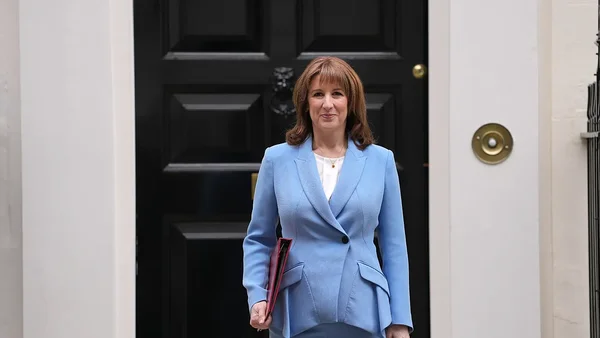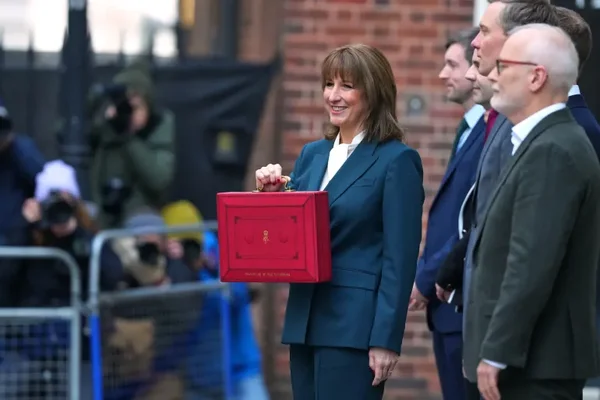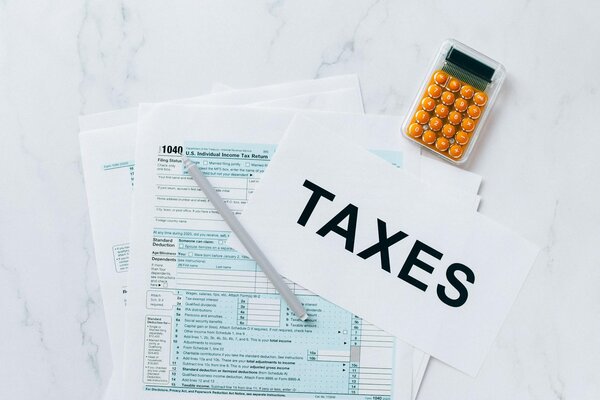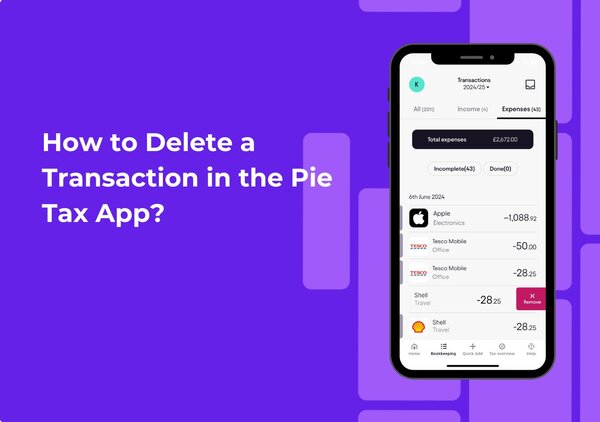Let’s Break This Down Together...
Earning through PayPal might feel casual, but HMRC could see it differently. If you’ve sold items or provided services, you might need to pay tax on that income.
This article explains when PayPal income becomes taxable, how to register for Self Assessment, what expenses you can claim, and how to avoid common mistakes.
By reading this, you’ll understand exactly when to declare PayPal income and how to stay compliant without stress. Let’s find out!
Think PayPal Earnings Are Tax-Free? Think Again
Receiving money through PayPal doesn’t exempt you from UK tax obligations. All income, regardless of payment method, must be reported to HMRC if it meets certain criteria.
Many people use PayPal to receive extra income from a side hustle, such as selling items online or offering freelance services. However, these earnings are still subject to HM Revenue & Customs (HMRC) rules and may need to be reported for tax purposes.
Understanding when PayPal income triggers Self Assessment is crucial to avoid penalties. Your tax obligations depend on the nature of your income and how much you earn.
Pie tax makes tracking your PayPal income simple with automatic categorisation and real-time tax calculations. Or if you’re just here to get to grips with it all, let’s break it down!
What Counts as Taxable PayPal Income in the UK?
PayPal transactions from selling goods or services are generally taxable. This includes freelance work, online sales, digital products, or any service where you get paid through PayPal. Online sellers who receive income through PayPal must consider whether their income received exceeds the tax free allowance, as income above this threshold may be taxed.
Casual selling of personal items may be tax-exempt as “chattels”. These are personal possessions you’re getting rid of without trying to make a profit. For example, selling at car boot sales is usually considered a casual, tax free activity, as most people do not exceed the tax free allowance from such sales.
Regular trading activity, even part-time, constitutes business income. If you’re buying items specifically to sell them on, that’s trading. If you receive income from a hobby business, it may still be taxed if it exceeds the tax free allowance.
The intention to make a profit is a key factor HMRC considers. They look at how often you sell, whether you’re organised like a business, and if you’re deliberately trying to make money. Taxes may be owed if your activities go beyond casual selling.

Determining If You Are Self-Employed with PayPal Income
If you’re receiving money through PayPal for selling goods or providing services, it’s important to determine whether you’re considered self-employed for tax purposes. The key factor is whether your gross income from these activities exceeds the £1,000 trading allowance in a tax year. If it does, HMRC will likely view you as self-employed, and you’ll need to register for self assessment and complete a self assessment tax return.
Being self-employed means you’re responsible for reporting your income, calculating your profits, and paying income tax on any money you make above your personal allowance. You’ll also be able to claim allowable expenses to reduce your taxable profits. To get started, visit the HMRC website, where you can check if you need to complete a tax return and find guidance on how to register for self assessment.
It’s worth noting that even if your PayPal income is your only income, you still need to pay income tax on your profits if you exceed the trading allowance.
Make sure to keep detailed records of all your sales, services provided, and expenses, as you’ll need this information when you complete your assessment tax return. Registering as self employed and staying on top of your tax obligations will help you avoid penalties and ensure you only pay the tax you owe.
Do I Need to File Self Assessment if I Only Earned PayPal Income?
Yes, you need to file Self Assessment if your trading income through PayPal exceeds £1,000 in the last tax year (6 April to 5 April). This £1,000 is your Trading Allowance.
If you earn less than £1,000 from self-employment (including PayPal income) in the last tax year, you typically don’t need to be registered or file. This can be a relief for occasional sellers.
Even if your total income is below the Personal Allowance (£12,570), you must still register for Self Assessment if your trading income tops £1,000. You must be registered with HMRC and notify HMRC if your income exceeds this threshold.
PayPal doesn’t automatically report your income to HMRC, but you’re still legally required to declare it. The responsibility sits with you. You must tell HMRC about your income to avoid any tax owed.

When PayPal Income Doesn't Require Self Assessment
One-off sales of personal possessions below their original purchase price don’t usually count as taxable income. You’re not making a profit, just recouping some money.
Income from renting out property, a spare room, or a furnished room in your home may be covered by the Rent a Room scheme, which has its own tax-free allowance. If your rent or rental income from property or a room is below the room scheme’s threshold, you may not need to file a self assessment tax return.
If your total trading income stays under £1,000 for the tax year, you can use the Trading Allowance and don’t need to file. This is perfect for casual sellers. Money transfers between friends and family don’t count as income. That birthday money from your nan isn’t taxable!
Refunds or reimbursements that aren’t income-related don’t need reporting. If someone’s paying you back for something you bought, that’s not income.
Allowable Expenses and Tax Relief for PayPal Income
When you’re self employed and earning income through PayPal, you can reduce your taxable income by claiming allowable expenses. These are the costs you incur wholly and exclusively for your business, such as equipment, software subscriptions, postage, and marketing. By including these expenses in your self assessment tax return, you can claim tax relief and lower the amount of income tax you need to pay.
The amount of tax relief you receive depends on your total allowable expenses and your tax rate. For example, if you spend money on advertising your services or buying materials for products you sell, you can deduct these costs from your gross income to calculate your taxable income. This means you’ll only pay tax on your profits, not your total income.
To claim tax relief, keep thorough records of all your business expenses, including receipts and invoices. This will make it easier to complete your assessment tax return and support your claims if HMRC ever asks for evidence.
The HMRC website has detailed guidance on what counts as an allowable expense and how to claim it. If you’re unsure about what you can claim or want to make sure you’re getting all the tax relief you’re entitled to, consider speaking to an accountant or tax advisor. Taking the time to claim all your allowable expenses can make a real difference to how much tax you need to pay each tax year.

How to Register for Self Assessment with PayPal Income
Register by 5th October after the tax year you started trading. For example, if you began in June 2023, register by 5th October 2024. If you have started a new business and are earning through PayPal, you must register for self assessment.
You’ll need your National Insurance number and personal details to register. The process is straightforward on the HMRC website. Choose “self-employed” or “sole trader” when registering if your PayPal income comes from selling goods or services. This ensures you’re in the right category.
Maintain records of all PayPal transactions, fees, and business expenses. Good record-keeping makes tax time much easier.
Record-Keeping Requirements for PayPal Income
Keep PayPal statements for at least 5 years after the 31st January submission deadline. HMRC can investigate that far back in normal cases. You should also keep records of any investment income, savings, PAYE income from an employer, or other investments, as these may need to be reported on your self assessment tax return.
Document all business expenses claimed against PayPal income. This includes fees, postage costs, materials, and anything else directly related to earning. Record dates, amounts, and purpose of each transaction. A simple spreadsheet works for many small traders.
I once forgot to track my PayPal fees for a year of freelancing. Reconstructing those records took hours and likely cost me deductions I could have claimed.
Consider using accounting software that integrates with PayPal. This can save you significant time and reduce errors in your tax return.

Common PayPal Income Tax Mistakes to Avoid
Assuming small amounts don't need reporting is a common error. If you're over the £1,000 Trading Allowance, you need to declare it all. Not separating personal and business PayPal accounts makes record-keeping messy. This could lead to mistakes on your tax return.
Forgetting to account for PayPal fees as business expenses means you're paying more tax than necessary. These fees are deductible!
Missing the registration and filing deadlines leads to penalties. The Self Assessment deadline is 31st January after the tax year ends.
Failing to keep adequate transaction records can cause headaches if HMRC asks questions. Always keep more detail than you think you need.
Do I Really Need to Report My PayPal Income?
Self Assessment requirements for PayPal income depend primarily on whether you're trading. The key threshold is if you exceed the £1,000 Trading Allowance.
If your PayPal income comes from selling goods or services with an intention to make profit, you likely need to register for Self Assessment.
Even if you're below the Personal Allowance threshold, you must still register and file if your trading income exceeds £1,000.
When in doubt, it's always safer to register for Self Assessment rather than risk penalties for non-compliance. Better safe than sorry.
How Pie tax Takes the Stress Out of PayPal Tax Reporting
Getting your PayPal income tax right doesn't have to be complicated with the right tools. Pie tax makes the process straightforward. Pie tax's real-time tax calculator shows exactly what you owe as PayPal payments come in. It automatically categorises business versus personal transactions.
Our multiple-income dashboard is perfect for those mixing PayPal income with other revenue streams. You'll get a complete picture of your tax position.
The UK's first personal tax app integrates directly with PayPal, pulling in your transaction history. It automatically identifies potential business expenses and deductions.

Quick and Easy Guide to Add Self Employed Income
Follow these steps to add self emploment income in the Pie app.
Add your income by swiping right on any taxable income you want to declare on your tax return. This will move the transaction into the ‘income tab’.Step 1

Use the ‘Quick Add’ feature to manually enter any additional income or expenses not found in your bank transactions for your self-assessment.Step 2











